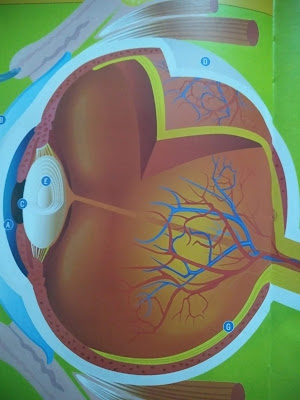Telling the difference between tastes,was Crucial to our prehistoric survival. Bitter flavours, for instance, may have a signaled a poisonous plant. Sour taste indicates a spoiled supper. Sweet, savory, and fatty flavors were tied to food with a lot of energy.
How do I taste my food???
Your tongue bristles with many tiny bumps called taste buds: chemical receptors that interpret flavours and transmit that information to your noggin. Our sense of smell also greatly enhanced the flavor of out food.
Why do my arms or legs get tingly when I lie on the. ???
Roll onto your arm in your sleep and you will likely wake up to find it numbs and lifeless, as if it wants to sleep in. Then comes the sensation of pins and needles.contrary to what you might think, limbs don't go limps simply because you cut off their blood supply when you lie on them wrong. Instead you are pressing on nerves and cutting off the limbs communication with the brain. Roll off and the nerves go through a sort of "reboot", sending pulses to the brain that you are perceive as that tingly feeling. The lazy limb comes back online in short order.
Why do I start sneezing when I step into sunlight???
You must have a "photic sneeze reflex" a condition that causes you to sneeze uncontrollably when suddenly exposed to bright light. About on in five people have it, although aren't sure why?? ?
Why does I get light headed when I stand up too fast.????
Doctors have a name for that fuzzy feeling in your head when you leap to your feet from a sitting position : orthostatic hypotension. When you stand up quickly, gravity causes blood to settle in the lower parts of your legs and lower torso
Your body tries to equalize blood pressure to our upper torso, arms and head, which results in a sudden drop in blood pressures and a few seconds of feeling faint. It's normal for us.
Why does my to tongue has flavor-sensing zones? ???
People used to think that different clusters of taste buds around your tongue were turned into different flavors, but recent studies debunked this" taste and map" with only slight variation. Every taste bud on your tongue is capable of sensing all the flavors. The center your tongue meanwhile is a tasteless place, free of taste buds.
How do I taste my food???
Your tongue bristles with many tiny bumps called taste buds: chemical receptors that interpret flavours and transmit that information to your noggin. Our sense of smell also greatly enhanced the flavor of out food.
Why do my arms or legs get tingly when I lie on the. ???
Roll onto your arm in your sleep and you will likely wake up to find it numbs and lifeless, as if it wants to sleep in. Then comes the sensation of pins and needles.contrary to what you might think, limbs don't go limps simply because you cut off their blood supply when you lie on them wrong. Instead you are pressing on nerves and cutting off the limbs communication with the brain. Roll off and the nerves go through a sort of "reboot", sending pulses to the brain that you are perceive as that tingly feeling. The lazy limb comes back online in short order.
Why do I start sneezing when I step into sunlight???
You must have a "photic sneeze reflex" a condition that causes you to sneeze uncontrollably when suddenly exposed to bright light. About on in five people have it, although aren't sure why?? ?
Why does I get light headed when I stand up too fast.????
Doctors have a name for that fuzzy feeling in your head when you leap to your feet from a sitting position : orthostatic hypotension. When you stand up quickly, gravity causes blood to settle in the lower parts of your legs and lower torso
Your body tries to equalize blood pressure to our upper torso, arms and head, which results in a sudden drop in blood pressures and a few seconds of feeling faint. It's normal for us.
Why does my to tongue has flavor-sensing zones? ???
People used to think that different clusters of taste buds around your tongue were turned into different flavors, but recent studies debunked this" taste and map" with only slight variation. Every taste bud on your tongue is capable of sensing all the flavors. The center your tongue meanwhile is a tasteless place, free of taste buds.

